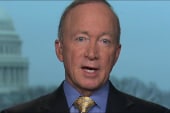
It's almost a half century since I bought my first bike, and now the season's end comes with a little extra wistfulness, as I contemplate that my riding career is about over.
That was supposed to happen this year.
An increasingly aggressive lobbying campaign by the five Daniels women ("Really, Dad, don't you think it's about time?") had persuaded me to call it quits. I sold one of my two Harleys and made plans to donate the other, which is too much of a custom keepsake for eBay, to a friend's collection.
But - Guy Story Trigger Warning - at the last minute, standing in front of the waiting trailer, I just couldn't bring myself to do it. Down went the garage door, and I sneaked back in the house, reinstated the registration and insurance, and started working on my spousal and fatherly alibi.
Aside from the fun I'll miss in riding retirement, I find the prospect rueful for a second reason.
Motorcycling has always been a hobby through which riders can encounter a wonderfully wide spectrum of fellow enthusiasts. More than any other pursuit that comes to mind, it has long attracted people of all types.
Even as America became a nation of flyover air travel and interstate highway travel, motorcycle riding remained a pastime that takes you on old roads and into small towns, where you were apt to meet people from geographically distant parts and socially distant backgrounds.
Outside one Indiana diner, I encountered a group of riders in matching leather jackets whose colors said "Boozefighters." That was the name of the gang that inspired Marlon Brando's "The Wild One" back in 1953.
I asked one of them about it. "That's right," he said. "We're drinkers with a motorcycle problem."
In the 1950s and '60s, as the sport sought to expand, it adopted a more genteel face.
A Japanese company with eventual designs on the American auto market unveiled its initial two-wheel offerings with the slogan, "You meet the nicest people on a Honda."
The Beach Boys sang, "It's not a big motorcycle, just a groovy little motorbike."
According to the Motorcycle Industry Council, the number of motorcycle registrations exploded from 2.8 million in 1970 to 8.6 million in 2015. With that growth has come a wide diversification in participants.
A surge in female ridership - from 8 percent in 1998 to 14 percent in 2014, the council says - is one of the more recent positive trends.
With most riders often wearing similar clothing and sharing a deep interest in equipment, accessories and tales of the road, one can never assume anything about the new acquaintances a ride often brings.
In one typical encounter, at a huge charity ride - motorcyclists of all income levels tend to be inordinately generous and are constantly organizing events for good causes - I was bantering with members of another motorcycle club, the Outlaws, getting a kick out of the fact that every one of them had a nickname: Blackjack, Deadeye, Papa Smurf and the like.
When a bearlike, long-haired fellow sauntered up, dressed in studded leather like others, I asked him if he had a nickname.
"Everybody calls me Doc," he replied. "OK, Doc," I said. "Are you a member of the Outlaws?" "No, I'm an anesthesiologist over here at Methodist Hospital." You just never know.
In this social clustering, self-segregating era, that aspect of biking is especially enjoyable, and meaningful. There are fewer and fewer organizations, activities or recreational pursuits through which Americans of very different stations meet one another on equal terms, with entirely common interests.
That fact of modern times is not, some of us believe, a trivial factor in the cultural estrangement now afflicting our social and political life.
In my previous job as a politician, I tried whenever possible to stay overnight in citizens' homes, from inner-city urban to small towns to the most remote farms, with people of every income level. The practice was invaluable, bringing new friends, new insights, great anecdotes and examples for the next speech.
But mainly it was a lesson in our commonality, the values and concerns that we share instead of dividing over. One might say, stereotypes die in the light of personal interaction.
So if you don't have a cross-cultural hobby, think of trying mine. It's a ton of fun, it may be the last place where you can't possibly text or expose yourself to anti-social media, and you'll get to know some good folks that life won't otherwise bring your way.
Take it from me (but don't take my Harley just yet), you'll meet the nicest people.
Sign up for the daily JWR update. It's free. Just click here.
(COMMENT, BELOW)
Daniels, a Washington Post contributing columnist, is president of Purdue University and a former governor of Indiana.
Previously:
• 12/06/18: Let's value grit over grades
• 12/03/18: Getting Washington out of D.C
• 11/12/18: The problem with scorched-earth campaigning
• 08/14/18: Government 'transparency' has gone too far
• 07/31/18: When a state is drowning in debt, should the rest of us have to pay?
• 07/10/18: Big Data is always watching
• 07/03/18: Learning from our mistakes in higher ed
• 06/14/18: Entitlement can is getting too heavy to kick
• 04/23/18: Our judgments about the past should make us a little less arrogant about the way we act today
• 12/29/17: Avoiding GMOs isn't just anti-science. It's immoral
• 12/08/17: Is anyone ever wrong anymore?


 Contact The Editor
Contact The Editor
 Articles By This Author
Articles By This Author